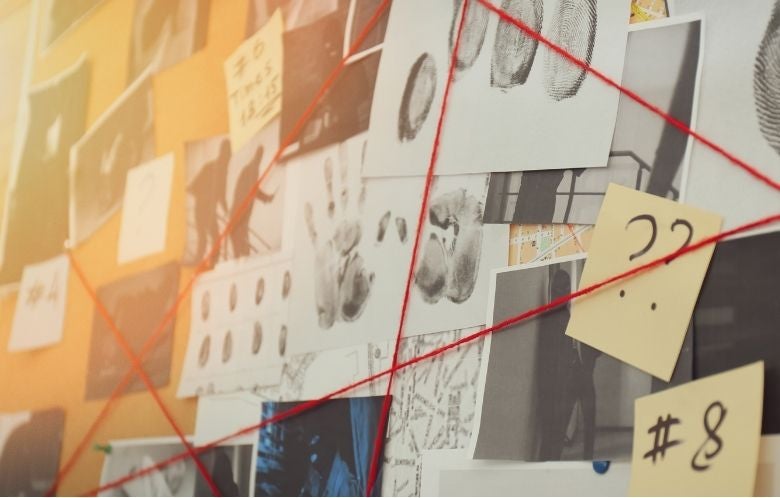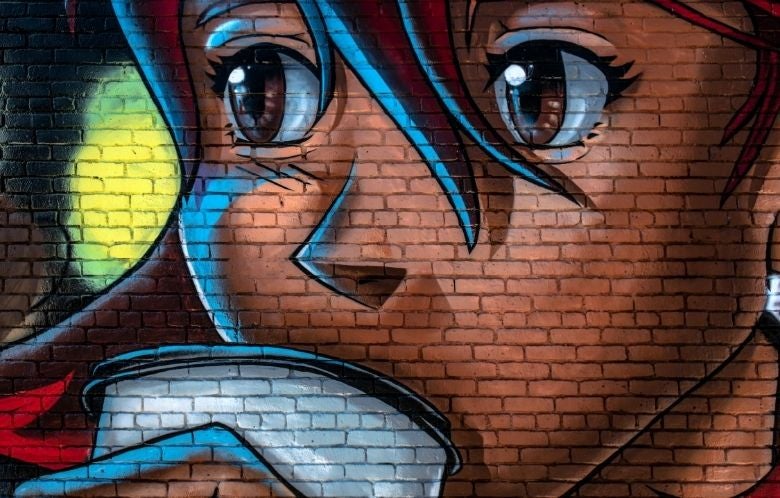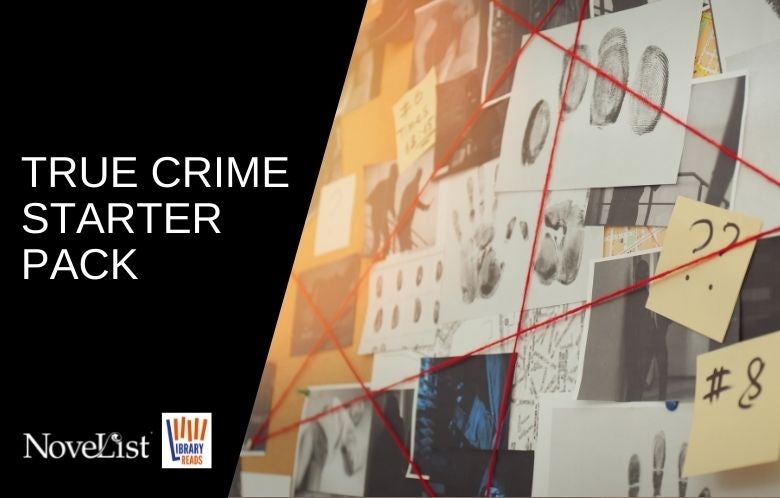Three readers’ advisory experts spent a lively hour discussing True Crime in our most recent Crash Course webinar. Our panelists, Yaika Sabat, Kate Fais, and Susen Shi, had so much helpful information to share that we didn’t have quite enough time to answer all of the questions that came in during the webinar. The presenters kindly agreed to share their responses to the remaining questions below:
I am interested if people have issues with patrons being triggered by True Crime discussions. Trauma can be sneaky.
Yaika: Unfortunately, because of the nature of the subject, there is a risk of a reader being triggered. I have not personally had an issue with patrons being triggered or have not had a patron tell me that. If I’m having a readers’ advisory conversation with someone about True Crime, I do try to make sure to ask what they want to avoid to try and lessen the chances of a trigger. Also, I do normally mention if the book is particularly gory or gruesome in detail since some people don’t mind reading about a violent crime but don’t want every detail shared.
Kate: I am a True Crime fanatic, but some areas in the genre are particularly triggering for me. In my case, if I’m aware that a certain trigger (sexual assault) is in the book, I can mentally prepare myself. So, if a reader is dipping into True Crime for the first time, I ask if there’s something they need to avoid.
How do you determine what to add to the collection? What makes it purchase-worthy vs. buying every single True Crime book out there?
Yaika looks at reviews for titles, both from professional and non-professional sources, such as Core Collections and examines if the crime discussed in the book already has coverage in the True Crime section. If it’s not, then she’s more likely to consider it, but if there are already several titles that have similar information, she would have to think about what makes the book she is considering stand out. She also takes into account whether the book may add new important information about a well-discussed crime, like The Black Dahlia case.
Do you have any recommendations for True Crime for young adult audiences?
The panelists collaborated to share the following list:
- The 57 Bus: A True Story of Two Teenagers and Crime by Dashka Slater
- The Borden Murders: Lizzie Borden & the Trial of the Century by Sarah Miller
- From a Whisper to a Rallying Cry: The Killing of Vincent Chin and the Trial that Galvanized the Asian American Movement by Paula Yoo
- Just Mercy: Adapted for Young Adults: A True Story of the Fight for Justice by Bryan Stevenson
- Grand Theft Horse by G. Neri
- Blood, Bullets, and Bones: The Story of Forensic Science from Sherlock Holmes to DNA by Bridget Heos
- Bonnie and Clyde: The Making of a Legend by Karen Blumenthal
NoveList Plus also includes a Recommended Reads list for True Crime (Teens). Recommended Reads lists are regularly updated and always a good place to look for suggestions.
Which of these books would be good for book clubs?
Yaika suggests:
- In Cold Blood by Truman Capote is a classic and its literary quality, along with the shocking crime, should lead to a pretty good discussion. Also, while it has a bleak and sobering tone, it does not have “gruesome” attached, making it less severe than other books about murders.
- Just Mercy by Bryan Stevenson is a perfect choice if you want a book club option that takes on societal issues, in this case, the flaws in the justice system (and the need for reform).
- Killers of the Flower Moon: The Osage Murders and the Birth of the FBI by David Grann reads like fiction and has a historical element that may interest any historical fiction fans. Plus, it sheds light on a crime that highlights racism against Indigenous peoples.
Why does Wolf of Wall Street count as a True Crime?
The Wolf of Wall Street is a memoir written by Jordan Belfort, a conman who was involved in fraud and subsequently jailed for his misdeeds.
What are some good heist stories?
Susen and Yaika recommend:
- Master Thieves: The Boston Gangsters Who Pulled Off the World’s Greatest Art Heist by Stephen A. Kurkijian
- The Feather Thief: Beauty, Obsession, and the Natural History Heist of the Century by Kirk W. Johnson
- Norco ‘80: The True Story of the Most Spectacular Band Robbery in American History by Peter Houlahan
Are books on genocide considered True Crime?
Yaika: Genocide, in general, is more a human rights story, but if it is focusing on something like the trial of those responsible, that could count. They Would Never Hurt a Fly: War Criminals on Trial in The Hague by Slavenka Drakulic is an example of that. Also, books about Nazi war criminals and the people chasing them do fall into True Crime sometimes.
How can you tell how much violence is in a book without reading it?
Yaika looks in NoveList and tries to see if appeals like gruesome or violent are on the book record. While it may seem like this would be attached to every True Crime book, that’s not the case. So, when she sees these terms, she knows the book may be more explicit. Normally she’ll stay away from those if she makes suggestions for a reader who doesn’t want too much violence. It’s almost impossible to avoid some level of violence in books that discuss murder, but you can avoid something gruesome.
Certain subjects, like white-collar crime, fraud, embezzlement, and art or rare book theft, are usually a bit safer because they don’t involve much violence.
Another strategy you can use is to read the reviews; do they mention if the book has lots of violence? What about user reviews on GoodReads?
What is your favorite True Crime book?
Yaika: This is such a hard question, but I think right now it would be I’ll Be Gone in the Dark. I love Michelle McNamara’s writing style, her passion for the subject, and the respect she gives to the victims of the crimes. Also, some of the times took place in an area where I lived as a child (they happened before I was born), so it was interesting recognizing the place. This book really struck an emotional chord with me.
Susen: I don’t know if I have a favorite True Crime book or a favorite anything, but one of the titles that have stuck with me is Chanel Miller’s memoir Know My Name. This is more True Crime adjacent but Miller’s words and the aftermath of her assault speaks volumes about the intersectionality of race and gender.
Are there any crimes you can't read about?
Yaika: I can read almost any type of True Crime, but if I do avoid something, it’s probably crimes against children. It’s just too devastating.
Kate: Childhood sexual abuse and assault. I cannot touch that at all.
Susen: I can read just about any True Crime but I always follow it up with a palette cleanser.
What is your current go-to True Crime podcast?
Susen: Bruh Issa Murder and Once Upon a Crime. Chicano Squad is done so well and well worth a listen.
Yaika: Redhanded, And That’s Why We Drink, and Morbid are my current go-to True Crime podcasts.
Kate: Morbid, Wine & Crime, and … Dateline! I’ve never watched Dateline, but they’ve been releasing their episodes as podcasts, and I love them.
What crime(s) do you hope to see solved in your lifetime?
Susen: The Gardner Museum Heist, Jack the Ripper, Yogurt Shop Murders, The Highway of Tears.
Yaika: Highway of Tears and the many other cases of murdered and missing Indigenous women, The Black Dahlia, the Texarkana Moonlight Murders (the unknown killer is referred to as The Phantom Killer).
Kate: The Gilgo Beach Killer (aka Long Island Serial Killer), and the Chicago Tylenol Murders of 1982.
What sparked your interest in True Crime?
Yaika: I fully blame my mom (but in a good way); she always had a big interest in forensics and criminal psychology and would read about serial killers and watch shows like Forensic Files. She did all of this without ever glorifying murderers, which unfortunately does happen sometimes in True Crime. I think she set a wonderful example and helped me always keep in mind that these stories all deeply affected people and are not just words on a page. I guess I just sort of inherited the interest, with my initial reason being that I wanted to try and understand what made criminals do the things they do. I became more and more interested in True Crime as I got older and there’s no sign of that stopping. So, thanks, Mom!
Kate: Mom! She gave me Agatha Christie novels to read when I was little, and I was hooked. We also still watch lots of murder mystery shows on PBS together, and love trying to figure out who the killer was (our current favorite is Midsomer Murders). Somehow, I made the jump from mystery to True Crime in high school, and … here we are.
Susen: Is it fair to say Law and Order? All those ripped from the headline episodes made me delve deeper into the actual cases that inspired them.


